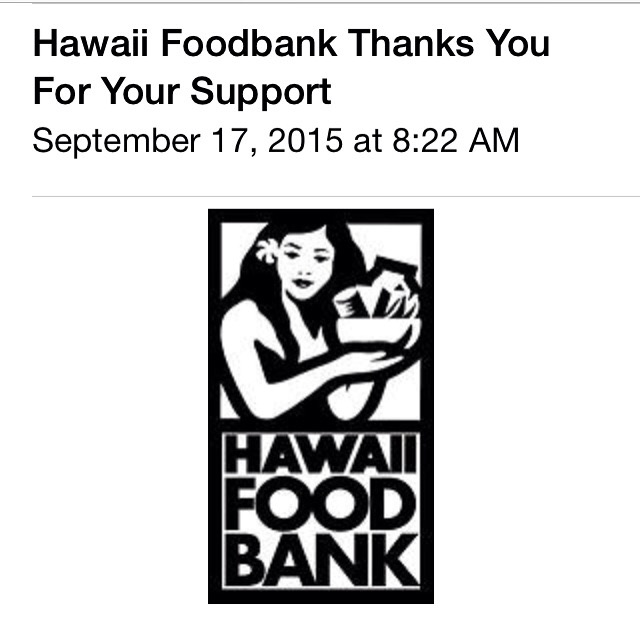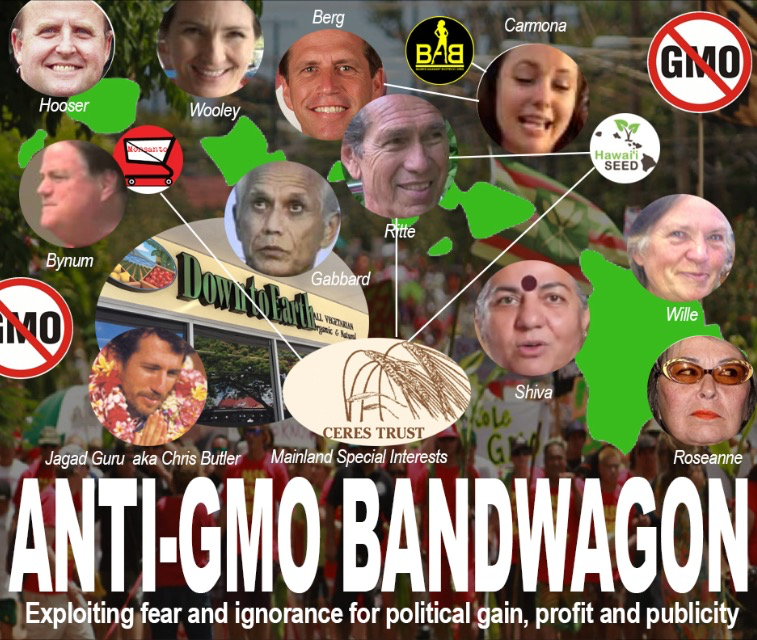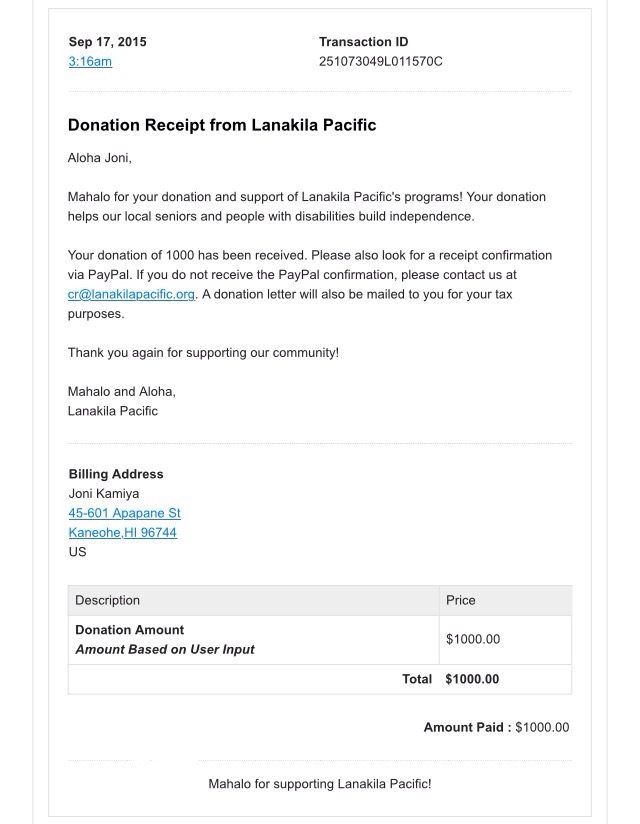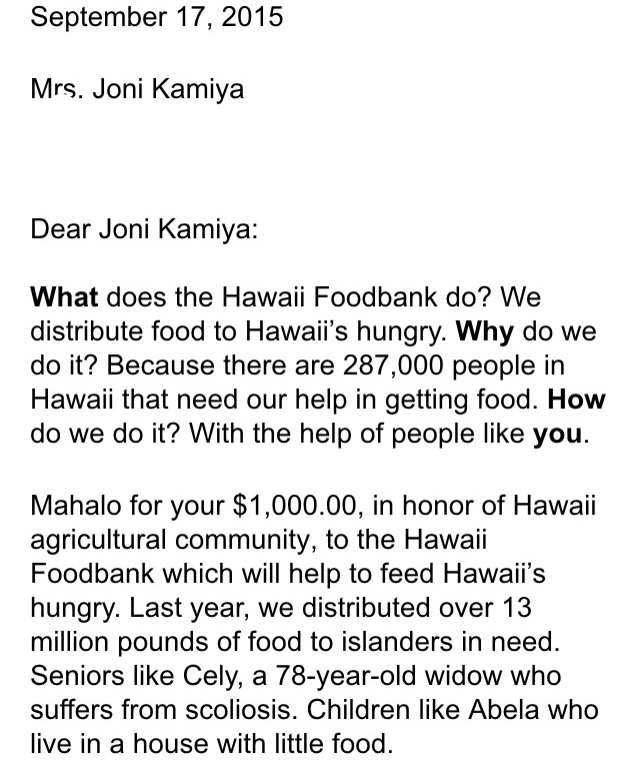
My time here in Cornell has been somewhat of an emotional roller coaster ride, but not in a bad way. I came really excited to meet fellow allies who have been affected by the anti-GMO activism across the globe. As I learned about their stories and experiences in Kenya, Ghana, Bangladesh, Philippines, and Nigeria, I felt very sad. They had firsthand experiences of knowing farmers’ who have lost their crops and livelihoods to disease and pests. My dad’s farm also has had the same experiences but thanks to technology, he still can grow his papayas.
My dad worked two jobs for the majority of his life. He had a full time day job at the BYU-Hawaii physical plant to provider our family with a steady income and health insurance. After he finished work there, he went to work on the farm. When the farm failed over the years to disease, his day job was the backup. My siblings and I also had to take on part time jobs once we were of age to work to support the family.
For farmers in developing countries, farming is the main economic driver for their communities as I’m learning. Some 80% of the population relies on agriculture for their livelihoods. If crops fail, it spells utter devastation for many and the consequences go far beyond just the farm.
I’ll readily admit that I was somewhat ignorant to realizing how important agriculture is to the people of Africa. I was really saddened when I saw this meme of the Hawaii anti-GMO movement on a slide in a Kenyan farmer advocate’s presentation.

It included many Hawaii politicians and activists that were behind the furor of the movement back in 2012. Here were well fed and clothed people using misinformation to demand the labeling of GMO under the disingenuous “Right to Know” campaign. The Hawaii movement was indeed affecting many countries in Africa the right for farmers to use a technology, all of which are public sector developed, to help grow their crops and sustain their families. I feel ashamed that we, the people of the Aloha State, were using misinformation to keep farmers from these tools that could offer better ways of farming.
The activists were quick to demand their rights but think nothing about the rights of others to have access basics. Not only do these people promote a selfish message but they also told people that they’d turned gay or impotent by consuming GM foods! They used the battle cry of home rule but knew explicitly that Hawaii’s wins would dictate the issue in far off countries. I can now clearly see how we as a state is truly being used as a pawn by radical extremists like Greenpeace and the seemingly legitimate Center for Food Safety.
I felt the bleeding of aloha early on in the social media and can now pinpoint the source of it. The Greenpeace attitudes of using intimidation, threats, and ecoterrorism have taken root in my home state. Their manipulative fear campaigns take full advantage of otherwise normal folks and get them to reject the science permeating our lives. It’s mean to take advantage of peoples’ ignorance and turn them into raging bullies on the Internet. This is a clear reflection of radical environmentalists dictating policy which is wrong but accepted by the activists who defend bad behavior.
I was truly disappointed when the state attorney general, Doug Chin, signed on to the Vermont labeling case. Leaders of our state still haven’t figured out the true motives of the manipulation. We are food secure and can demand all kinds of rights about our foods and use it as a means to scare other countries on why it’s bad. It sets a bad precedent to the world who truly needs these tools.
My heart breaks knowing that my home state is the center of this global battle that shouldn’t be. How can we call ourselves the aloha state when we allow ourselves to be manipulated like this? We have no aloha if our actions deny others a better quality of life.
I want others to have a better quality of life and truly believe in using evidence not emotion to guide our policies. The Hawaii Crop Improvement Association generously gave me $2000 to help further my knowledge about agriculture globally. I thank them for investing in me but I realize that I am able bodied and can work to earn income for years to come.
There are people at home who need help and after much thought, I selected the best use for their generosity. I decided to donate $1000 each to the Hawaii Food Bank and the Meals on Wheels program. I get peace knowing that 117 meals can go to seniors through Meals on Wheels and some 250 meals can be given out by the Food Bank. Why should I deny others food when I have plenty?
So, yes, it is first time I can truly call myself a shill for taking money from the industry. I’m officially the pay it forward shill. It’s not in my pocket but in the hands of those who need it the most. Will my home state do the same by setting an example to the world by supporting policies that helped our papaya farmers help global farmers?
Lead by example and let’s start today by giving to others with evidence based policies.



Thank you for this. You made a powerful statement with your donations. I had a quick exchange with someone last night about showing gratitude for all of the choices we have with food. Saying you’re thankful for the abundant choices you have while taking away tools that allow others to have those same choices is the opposite of showing gratitude.